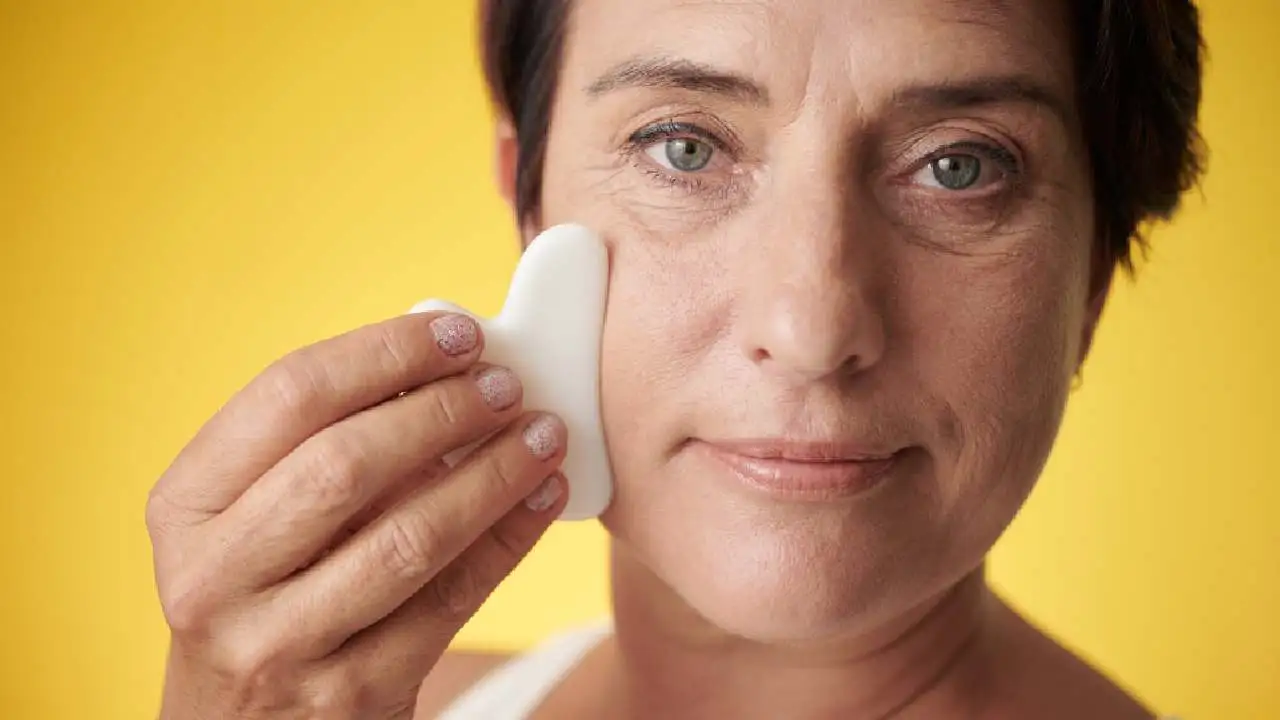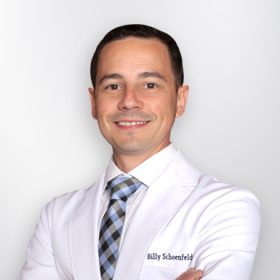Waking up to a puffy face in the morning can feel frustrating, especially if it disrupts your daily routine or causes discomfort. You might wonder if last night’s meal, lack of sleep, or something more serious is to blame. A swollen, tired-looking face isn’t just a cosmetic concern—it could indicate an underlying health issue.
While occasional puffiness may be harmless, persistent swelling can point to problems like poor circulation, chronic venous insufficiency (CVI), or other systemic conditions. At Vein Treatment Clinic, our vein specialists can help you uncover the root cause of your puffy face in the morning and recommend effective solutions. Keep reading to learn about common causes of morning facial swelling, its potential connection to vein health, and how we can help.
Why Is My Face Puffy? Common Causes of Puffy Face in the Morning
Morning facial puffiness is often harmless but may sometimes signal a deeper issue. Here are some common causes:
- Fluid Retention from High Sodium Intake: Consuming salty foods, especially in the evening, can cause your body to retain water. This fluid retention may accumulate in your face overnight due to lying flat while sleeping, leading to a puffy face in the morning.
- Chronic Venous Insufficiency (CVI): CVI occurs when veins in the legs struggle to return blood to the heart efficiently, causing blood to pool in the lower extremities. Over time, this can lead to systemic fluid retention, including a puffy face in the morning.
- Allergies or Sinus Congestion: Allergic reactions or nasal congestion from colds or sinus infections can lead to swelling in the face. Allergies may also cause redness, itchiness, or puffiness around your eyes.
- Sleep Issues: Poor sleep quality, sleeping in awkward positions, or using the wrong pillow height can impede normal fluid drainage and result in temporary puffiness.
- Hormonal Changes: Fluctuations in hormone levels, such as during your menstrual cycle or pregnancy, may lead to water retention and facial puffiness.
- Dehydration: Ironically, not drinking enough water can cause your body to hold onto fluids, resulting in facial swelling. Ensuring consistent hydration can prevent this.
- Poor Circulation in the Legs: Swelling in the legs and ankles caused by poor circulation can sometimes extend to the face, particularly when lying flat.
Signs and Symptoms Indicating Your Puffy Face Is Caused by CVI:
If your legs often feel heavy, weak, or unusually tired, you’re not alone. These symptoms can be caused by a variety of underlying conditions—some minor, others more serious. Understanding what’s behind the discomfort is the first step to feeling better. Here are some of the most common reasons your legs might feel this way:
- Persistent or recurrent facial puffiness, particularly in the morning
- Swelling in the legs, ankles, or feet (especially by the end of the day)
- Visible spider veins or varicose veins in the legs
- Aching, heaviness, or fatigue in the legs
- Skin changes or discoloration on the lower legs
- Leg cramps or restless legs at night
- Open sores or wounds on the legs that are slow to heal
Treatments for Chronic Venous Insufficiency
At Vein Treatment Clinic, we specialize in minimally invasive treatments for CVI, focusing on safety and long-lasting results. Below are some of our minimally invasive pain treatments:
- Sclerotherapy: Sclerotherapy involves injecting a medical solution into the affected veins, causing them to collapse and be reabsorbed by the body. This treatment is ideal for spider veins and smaller varicose veins. Patients often notice improvements in circulation, which reduces symptoms like leg swelling and possibly addresses issues like puffiness.
- Endovenous Laser Ablation (EVLA): This procedure uses laser energy to close off malfunctioning veins. Guided by ultrasound, our vein specialists insert a small fiber into the vein, delivering targeted energy to seal it shut. EVLA is highly effective for addressing poor circulation and alleviating swelling in the legs, which may also reduce facial puffiness.
- Radiofrequency Ablation (RFA): RFA works similarly to EVLA but uses heat generated by radiofrequency energy to treat damaged veins. This outpatient procedure is quick, minimally invasive, and highly effective at improving venous blood flow.
- VenaSeal: VenaSeal uses a medical-grade adhesive to seal problematic veins, redirecting blood flow to healthier veins. This innovative, non-thermal technique is ideal for patients seeking a virtually painless treatment with minimal downtime.
- ClariVein: ClariVein combines mechanical rotation with a sclerosant to close damaged veins. This treatment is particularly effective for larger varicose veins and is performed under local anesthesia, ensuring maximum comfort.
- Ambulatory Phlebectomy: This procedure involves physically removing varicose veins through tiny incisions. It’s a great option for larger veins visible on the surface. Removing these veins can improve venous circulation and help resolve related symptoms like swelling in the legs or puffiness in the face.
FAQs
Why is my face puffy in the morning?
Morning puffiness can result from factors like fluid retention, allergies, sleep posture, or more serious conditions such as chronic venous insufficiency. If the facial swelling is persistent, consult a specialist to identify the cause.
What causes swelling in the legs and face?
Swelling in the legs and face often stems from fluid retention. In some cases, poor circulation in the legs or venous insufficiency may lead to systemic swelling that includes facial puffiness.
How can I reduce a puffy face in the morning?
Simple remedies include reducing salt intake, staying hydrated, addressing allergies, and improving sleep posture. If the puffiness persists, consult a vein doctor to rule out underlying conditions like chronic venous insufficiency or venous reflux.
What treatments are available for chronic venous insufficiency?
At Vein Treatment Clinic, we offer minimally invasive treatments, including sclerotherapy, EVLA, RFA, VenaSeal, ClariVein, and ambulatory phlebectomy. These procedures effectively improve venous circulation and alleviate symptoms.
Addressing morning facial puffiness starts with understanding its root cause. If you suspect chronic venous insufficiency or other vein-related issues, don’t wait to seek care. At Vein Treatment Clinic, our board-certified vein specialists provide cutting-edge treatments tailored to your needs. Contact us to schedule a consultation to explore possible treatments.









